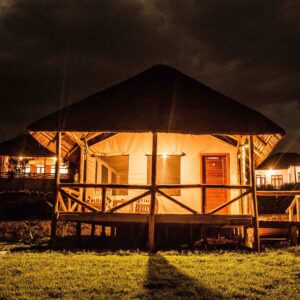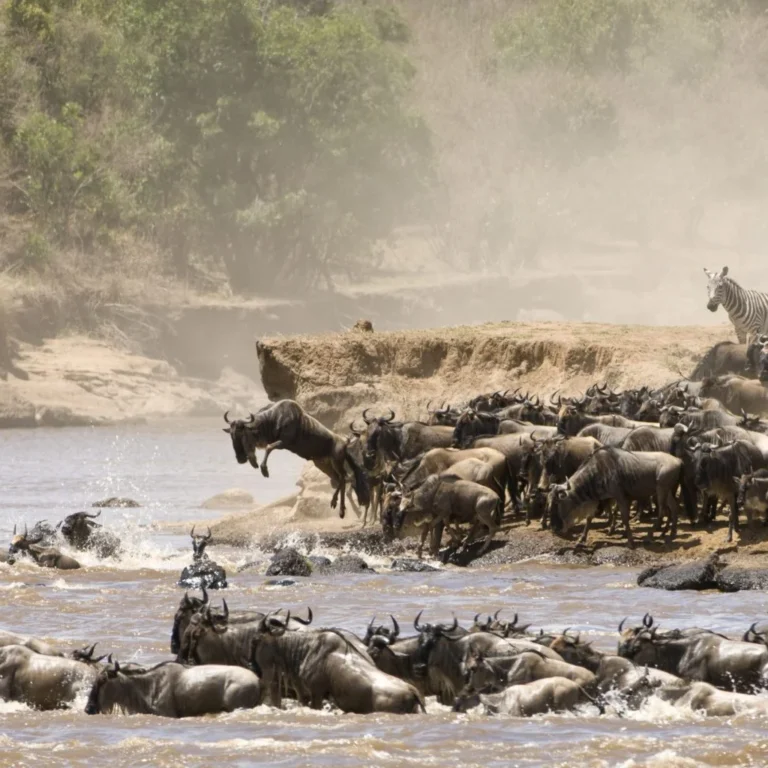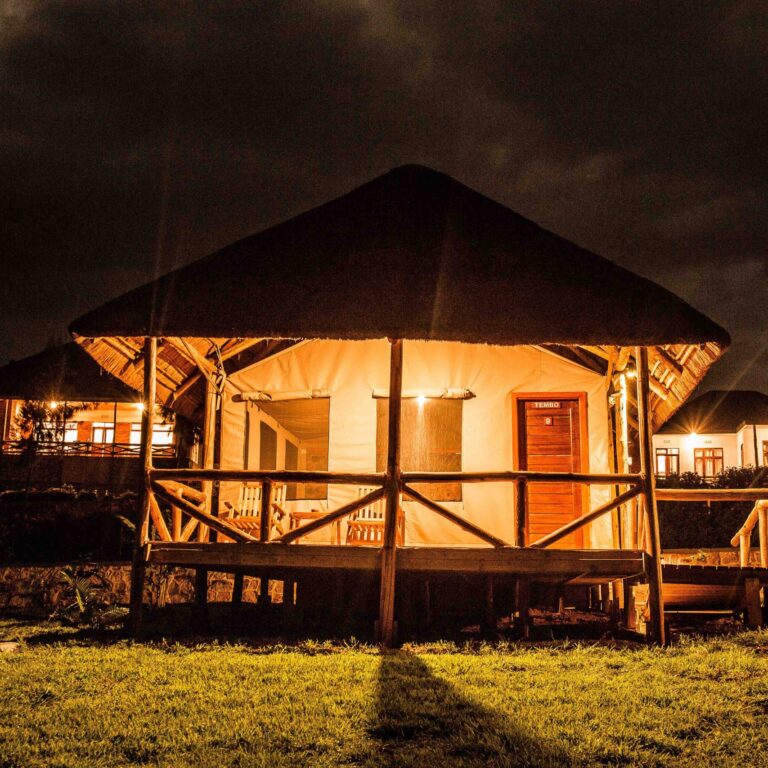Climbing Mount Kilimanjaro is a once-in-a-lifetime experience for many. The allure of Africa’s highest peak, combined with the variety of landscapes, wildlife, and the achievement of reaching the summit, draws thousands of trekkers each year. But preparing for such a journey requires more than just physical endurance; it’s also about selecting the right gear for comfort and safety during the trek. One of the common questions that arises when planning a Kilimanjaro climb is: Do I need a camp pillow?
While many climbers may focus on essential items such as warm clothing, sturdy boots, and a good sleeping bag, the importance of a quality camp pillow often gets overlooked. For many, the idea of trekking with extra gear might seem unnecessary. However, for those who prioritize comfort, a camp pillow can be a small but essential item that can significantly enhance your sleep quality during the climb, especially when spending multiple nights in tents at higher altitudes.
In this article, we will explore whether or not you need a camp pillow for your Kilimanjaro climb, the benefits of using one, alternatives to traditional pillows, and tips for getting a good night’s rest on the mountain. Why is Sleep Important During the Kilimanjaro Trek?
Before delving into whether you need a camp pillow, it’s crucial to understand why sleep is so important on the Kilimanjaro trek. The climb is physically demanding, with each day requiring hours of walking, sometimes at high altitudes and through varying terrain. After a long day of trekking, a good night’s rest is essential for your body to recover, especially as you get closer to summit day.
At higher altitudes, sleep can be more difficult to come by. The lower oxygen levels can disrupt your normal sleep cycle, making it more challenging to get the restful sleep your body needs to acclimatize. Proper rest allows your body to adjust to the altitude, rebuild muscles, and replenish energy stores, all of which are necessary for continued success on the mountain.
While the trek itself is demanding, the right sleep setup can make a big difference in how rested and ready you feel the next day. A comfortable and supportive camp pillow can go a long way in helping you fall asleep quickly and sleep soundly, which will help you feel more refreshed the following morning.
What is a Camp Pillow?
A camp pillow is a portable pillow designed for outdoor use. Unlike a traditional pillow, which might be too bulky or impractical for trekking, camp pillows are lightweight, compact, and designed to provide comfort and support while sleeping in tents, hammocks, or other outdoor settings. They come in various shapes and materials, with some designed for more minimalist or ultralight approaches, while others provide more plush comfort.
Camp pillows are typically filled with foam, air, or a combination of both. Some are inflatable, allowing trekkers to adjust firmness levels by adding or releasing air, while others use memory foam or synthetic fill for a consistent level of softness and support.
Given the amount of time spent trekking and the strenuous nature of the climb, a good camp pillow can help improve the quality of your rest by supporting your neck and head, which is crucial for avoiding discomfort and waking up with sore muscles.
The Benefits of Using a Camp Pillow on Kilimanjaro
While it’s possible to climb Mount Kilimanjaro without a camp pillow, there are several reasons why using one can significantly improve your experience. Here’s why you might want to consider bringing a camp pillow for your trek: Is a Camp Pillow Recommended on Kilimanjaro? A camp pillow is an optional item on our gear list because you can make one with your clothing and a gear bag. Take your fluffy extra clothing, such as hiking shirts, down jackets, or fleece apparel, and put them into a gear bag, compression bag, or stuff sack.
Better Sleep Quality
As mentioned earlier, sleep is essential for your body’s recovery during the trek. Without adequate support for your head and neck, it’s easy to wake up with neck pain or discomfort. Even small amounts of poor sleep can negatively affect your performance the next day. A camp pillow provides the right amount of support for your neck, helping to alleviate pressure points and promote better sleep quality. This, in turn, helps you feel more rested and energized for the long days of trekking.
Neck and Spine Support
When you’re camping on Kilimanjaro, the sleeping arrangements can be somewhat uncomfortable, especially when sleeping on hard ground or uneven surfaces. Without a pillow, you may find that your neck or spine isn’t properly aligned while you sleep, which can lead to stiffness and pain upon waking. A camp pillow helps to keep your neck and spine in proper alignment, reducing the likelihood of waking up with aches and discomfort. This can be especially important when trekking at higher altitudes, where the combination of physical exertion and altitude-induced fatigue can already take a toll on your body.
Compact and Lightweight
One of the primary concerns when packing for a Kilimanjaro trek is weight and space. While a regular pillow might be too bulky to bring along, a camp pillow is designed to be both lightweight and compact, making it easy to fit into your gear. Many inflatable camp pillows can be deflated and rolled up into a small, space-saving size, allowing you to keep your pack light and efficient without sacrificing comfort.
For those looking to minimize weight, a camp pillow is an excellent compromise between comfort and practicality. Its small size and lightweight nature make it easy to carry without adding unnecessary bulk to your pack.
Improved Comfort During Rest Stops
When you’re trekking on Kilimanjaro, there may be moments when you need to rest or take breaks during the day. A camp pillow can come in handy not only for nighttime sleep but also for your comfort during rest stops. Whether you’re lounging in your tent or relaxing on a short break, having a pillow to support your neck and head can make a big difference in your overall comfort, allowing you to relax and recharge more effectively.
Personal Hygiene and Comfort
After several days of trekking in rugged conditions, comfort and hygiene may become priorities for your mental and physical well-being. Having a dedicated pillow for sleeping can make a significant difference in how comfortable and clean you feel, especially when you’re in a shared tent with other climbers. A camp pillow provides a personal, familiar item that can help improve your rest and hygiene during your stay on the mountain.
Alternatives to Traditional Camp Pillows
If you’re not keen on purchasing a dedicated camp pillow, there are a few alternatives that can still provide some level of comfort:
Stuffed Clothes or Jackets: If you’re looking for a more budget-friendly or minimalist approach, you can use a jacket or a pile of clothes as a makeshift pillow. Simply stuff your jacket or clothes into a stuff sack or small bag to create a pillow-like shape. While this can provide some support, it’s unlikely to offer the same level of comfort and neck support as an actual camp pillow.
Inflatable Sleeping Pads with Integrated Pillows: Some sleeping pads come with integrated pillows or raised sections designed to provide neck support. If you’re already planning to bring an inflatable sleeping pad, consider investing in a model that includes an integrated pillow feature. While this might not offer the same level of adjustability as a standalone pillow, it can still provide basic support for your neck and head.
Inflatable Pillow: If you don’t want to carry a bulky pillow but want to enjoy the benefits of an actual pillow, an inflatable pillow is a great option. These pillows are lightweight, portable, and easy to adjust. Many climbers choose inflatable pillows for their ability to customize the firmness level and their small size when deflated.
Can You Sleep Without a Camp Pillow on Kilimanjaro?
While it’s entirely possible to complete the Kilimanjaro trek without a camp pillow, the question is whether it will be comfortable. Many climbers opt to forego a pillow, relying on makeshift alternatives or using a rolled-up jacket or spare clothing for head support. However, this can lead to neck discomfort, poor sleep quality, and even soreness after several nights of sleeping on hard, uneven ground.
Ultimately, your decision will depend on how much you prioritize comfort and whether you’re willing to carry the extra weight of a camp pillow. If you are someone who finds it difficult to sleep without proper support, then a camp pillow might be a worthwhile addition to your gear.
Tips for Choosing the Right Camp Pillow for Kilimanjaro
If you decide to bring a camp pillow for your trek, here are some tips for choosing the right one:
Size and Weight: Opt for a pillow that is lightweight and compact. Look for inflatable pillows that can be deflated and rolled up for easy storage in your pack.
Adjustability: Choose a pillow that allows you to adjust the firmness level for a customized sleep experience. Some inflatable pillows have valves that let you add or release air to find the right level of support.
Material: Consider the material of the pillow. Synthetic fill pillows are typically softer, while inflatable pillows are more adjustable and lightweight.
Comfort: Comfort is key when selecting a camp pillow. Make sure it provides enough support for your neck and head, and check for any rough seams or discomfort that could affect your sleep. Do I Need a Camp Pillow for Climbing Kilimanjaro?
Absolutely! While it’s not a mandatory item, a camp pillow significantly enhances your trekking experience. The improved rest and comfort it provides can make the difference between success and disappointment in Kilimanjaro.
Camp Pillow for Climbing Kilimanjaro FAQs
From our experience, Most people like a pillow for when they sleep, and Kilimanjaro is not the time to do without an essential night-time comfort. You could bring along a pillow, though it shouldn’t be too big, as it needs to fit in your duffel bag. We provide our climbers with pillows upon request.
Do I need a camp pillow for Kilimanjaro, or can I use my clothes as a makeshift pillow?
Using your clothes as a pillow is possible, but a camp pillow offers superior comfort and support, making it a worthwhile investment.
Are camp pillows suitable for all trekking conditions on Kilimanjaro?
Camp pillows are versatile and can be used in various trekking conditions. Choose one that suits your specific needs and preferences.
Can I rent a camp pillow at Kilimanjaro’s base camp?
While some companies offer rental options, it’s advisable to bring your own camp pillow for hygiene and familiarity with your gear.
What is the optimal time to purchase a camp pillow before the Kilimanjaro expedition?
It’s recommended to purchase a camp pillow well in advance to ensure you have time to test it and become accustomed to using it.
Do camp pillows have warranty options, and what if mine gets damaged during the climb?
Many camp pillows come with warranties. It’s advisable to check the warranty and have a backup plan in case of damage.
How do I clean and maintain my camp pillow during the expedition?
Follow the manufacturer’s cleaning instructions and use a protective cover to maintain the pillow’s hygiene and longevity.
What is the best sleeping bag for Kilimanjaro?
A mummy. A mummy-shaped sleeping bag is widest at the shoulders and very narrow from the knees down. It’s the most lightweight of the different sleeping bag shapes, and the warmest (because there’s less air inside the bag to heat up). So it’s a very good option for a Kilimanjaro climb.
Final Thought:
While you don’t need a camp pillow for climbing Kilimanjaro, it can make a significant difference in your overall experience. A good night’s rest is essential for maintaining your energy levels and ensuring your body is properly recovered for the challenging days ahead. A camp pillow provides added comfort, neck support, and better sleep quality, all of which are important for a successful and enjoyable trek.
Ultimately, the decision comes down to personal preference and comfort. If you value a good night’s sleep and are willing to carry the extra weight, a camp pillow can be a small but impactful addition to your gear list.






